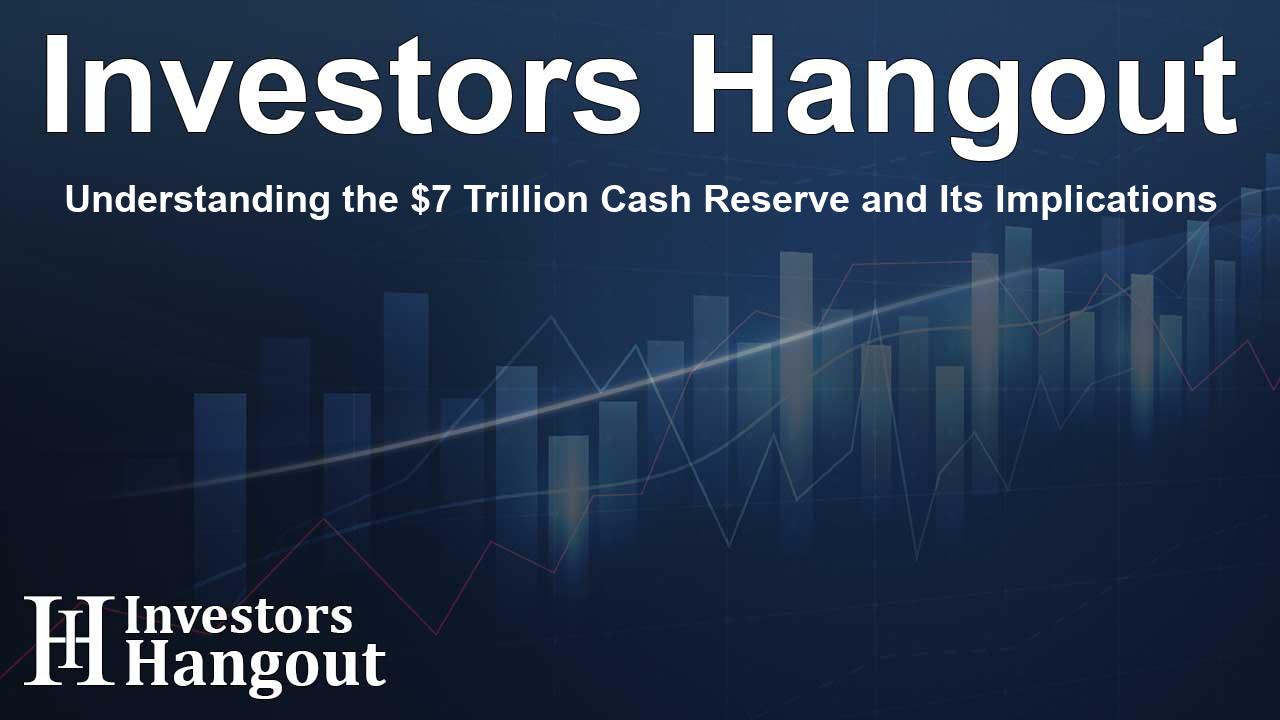Understanding the $7 Trillion Cash Reserve and Its Implications

Understanding the $7 Trillion Cash Reserve
Currently, an astonishing $7 trillion is sitting in money market funds (MMFs), creating a significant cash reserve. This unprecedented accumulation raises questions about whether this money will transition into broader investments soon or remain in these conservative holdings for the foreseeable future.
The Impact of Federal Reserve Policies
Many market strategists expect that this massive amount will decrease as the Federal Reserve begins to lower interest rates, prompting investors to seek better returns for their capital. A hopeful scenario involves a 'soft landing' for the economy, suggesting that equities and other investments should become more attractive compared to mere cash holdings.
The Changing Financial Landscape
The economic and financial environment has shifted drastically since the pandemic. Long-standing investment rules, which have served policymakers, businesses, and consumers for decades, no longer hold the same relevance. Despite the Fed's aggressive interest rate hikes, markets have surged, and unemployment has remained relatively low, illustrating a complex and conflicting economic narrative.
Why Money Market Funds Are Gaining Popularity
MMFs currently provide higher interest rates than traditional savings accounts and other fixed-income assets like Treasury bonds. This shift leads investors to prefer MMFs for their liquidity and safety, creating an unexpected trend where cash holdings may not decrease anytime soon. Historically, it is common for initial responses to Federal Reserve easing to result in increased cash reserves rather than immediate investments.
Timeline of Cash Movement Expectations
While there are high expectations for cash to start flowing into different channels, data suggests otherwise. Following the Fed's rate cuts, MMF balances have substantially risen, indicating cautious behavior from investors. Many are likely to hold their investments in cash until there is sufficient clarity regarding the Fed’s direction and economic stability.
Cash Is Here to Stay
With ongoing uncertainties in global markets, particularly regarding geopolitical issues and economic policies, cash may not leave the sidelines as quickly as anticipated. Rather, the $7 trillion may represent a significant shift in investment behavior, symbolizing a new normal where large cash reserves are used for liquidity management rather than immediate external investment.
Looking Towards Future Economic Trends
Given the high levels of uncertainty, it remains wise for analysts to reassess how they perceive MMFs. This large cash reserve should be viewed as a fundamental characteristic of today's economy rather than a temporary anomaly. As market conditions evolve, the role of cash reserves may redefine the strategies of investors, businesses, and policymakers alike, encouraging a deeper analysis of financial trends moving forward.
Frequently Asked Questions
What is the significance of the $7 trillion cash reserve?
The $7 trillion cash reserve reflects a cautious approach by investors in light of economic uncertainty, impacting investment strategies and market dynamics.
How do interest rates affect money market funds?
As the Federal Reserve lowers interest rates, investors typically seek higher returns, potentially prompting a movement away from MMFs, but current trends show an increase instead.
Are money market funds a safe investment?
Yes, MMFs are generally considered safe because they provide liquidity and often yield higher interest rates than standard savings accounts.
What factors could change the cash reserve trends?
Changes in Federal Reserve policies, market stability, and geopolitical events can significantly influence the flow of cash from MMFs into other investments.
Will investors continue to hold large cash reserves?
Given the current economic climate, it seems likely that investors will retain large cash reserves for liquidity and risk management, delaying significant reallocations into other assets.
About The Author
Contact Dylan Bailey privately here. Or send an email with ATTN: Dylan Bailey as the subject to contact@investorshangout.com.
About Investors Hangout
Investors Hangout is a leading online stock forum for financial discussion and learning, offering a wide range of free tools and resources. It draws in traders of all levels, who exchange market knowledge, investigate trading tactics, and keep an eye on industry developments in real time. Featuring financial articles, stock message boards, quotes, charts, company profiles, and live news updates. Through cooperative learning and a wealth of informational resources, it helps users from novices creating their first portfolios to experts honing their techniques. Join Investors Hangout today: https://investorshangout.com/
The content of this article is based on factual, publicly available information and does not represent legal, financial, or investment advice. Investors Hangout does not offer financial advice, and the author is not a licensed financial advisor. Consult a qualified advisor before making any financial or investment decisions based on this article. This article should not be considered advice to purchase, sell, or hold any securities or other investments. If any of the material provided here is inaccurate, please contact us for corrections.
